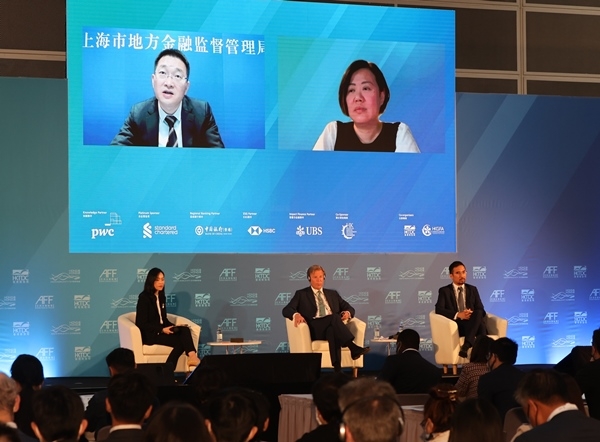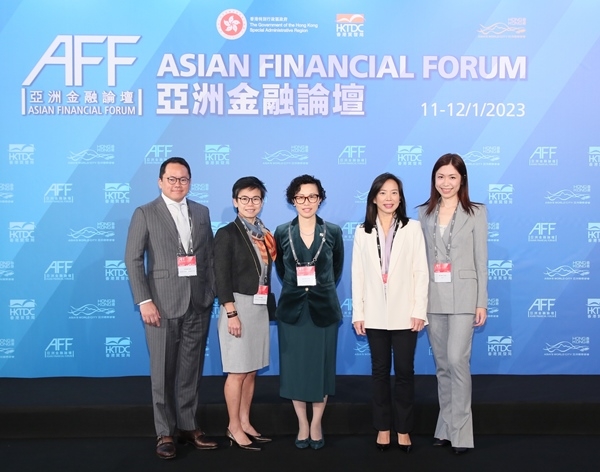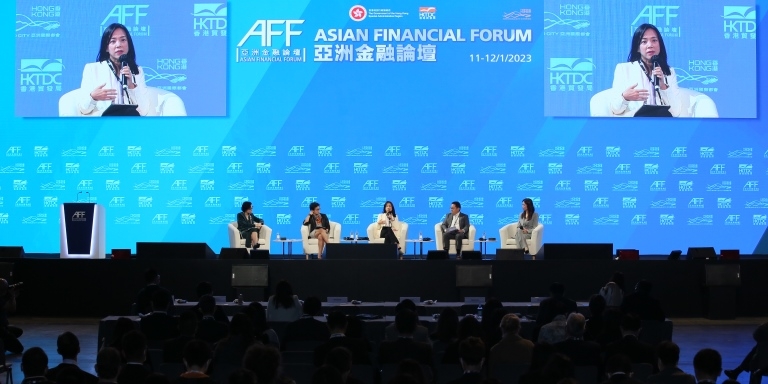“Elephants can be eaten in small pieces” is a saying that comes to mind, when faced with the task of moving Mainland China’s economy on to sustainable footing and achieving the stated goal of net-zero by 2060.
Transition to this target, less than four decades away, was the key issue discussed at an Asian Financial Forum (AFF) seminar, Scaling Transition Finance & Carbon Markets towards A Net Zero Future.
The AFF drew participants from more than 70 countries and regions, with about 20 delegations, and was organised by the Hong Kong SAR Government and Hong Kong Trade Development Council (HKTDC).
Decarbonising the mainland’s economy over the next 30 years will come with an estimated price tag of RMB487 trillion (US$72 trillion), making transition finance the ultimate elephant in the living room.
Financing such transitions was one of the key environmental, social and corporate governance (ESG) issues discussed at the Asian Financial Forum (AFF), which launched the financial events year in Hong Kong on 11 and 12 January.
Much of this funding will need to come from the private sector, Ms Chaoni Huang, Managing Director and Head of Sustainable Capital Markets APAC of BNP Paribas, stated when moderating the workshop that discussed the growth of sustainable finance products.

Weighty issues for Forum
The panel delved into the challenges of transition finance, the G20 Transition Finance Framework and the role of carbon markets in facilitating the acceleration to net-zero strategies.
Ms Salina Yan, Hong Kong SAR Permanent Secretary for Financial Services and the Treasury (Financial Services), opened the session by saying that the unique connectivity to mainland markets made Hong Kong the finance hub for mainland entities. The Shenzhen Municipal Government and Hainan Provincial Government recently issued green bonds in Hong Kong.
Dr Ma Jun, Chairman and President of the Hong Kong Green Finance Association, said the Securities and Futures Commission (SFC) and HKEX, which runs the Hong Kong Stock Exchange, had formed a working group to develop rules in line with global standards.
“We consulted over 50 listed issuers and professional bodies. To enhance reporting, we cooperated with the Carbon Disclosure Project [CDP] to develop the first climate and environmental risk questionnaire to help sustainability reporting for companies.”
Carbon trading was important, he said, with Hong Kong becoming a high-quality global carbon market. Core Climate, launched by HKEX in October, seeks to connect capital with climate-related opportunities in the mainland, Asia and beyond. It is the sole exchange offering Hong Kong dollar and renminbi trading. More than 40 trades in less than a month covered more than 400,000 tonnes of carbon dioxide trading.
Pivot point for carbon finance
International financial leaders discussed how organisations on all scales – from intergovernmental organisations to corporations – could handle the transition.
Sir William Russel, Former Lord Mayor of the City of London and Co-chair of the UK-China Green Finance Taskforce, remarked the COP26 conference in Glasgow had been a pivot point for transition funding. COP26 was known as “finance COP” and moved forward to COP27 in Egypt last year.
“COP28 in the United Arab Emirates will be the biggest – and it is vital that a fossil fuel economy is hosting.”
Dr Lin Wenjie, Director-General of the Shanghai Municipal Finance Bureau, said Hong Kong and Shanghai cooperated on transition finance. The Hong Kong-Shanghai investment connect systems took into account green stocks and exchange traded funds.
Ms Glenda So, Co-Head of Markets at HKEX, underlined the need to build an ecosystem: “Corporates are still developing transition funds and need to understand their carbon footprints, so they can reduce them”. The next step was to offset with carbon credits. Integrity was vital, the market needed to have certainty and confidence.
A key sticking point with the transition was the question of just what sustainability is and how to avoid greenwashing. There is a need for globally recognised industry standards.
That was the issue addressed by another AFF discussion panel – Global Spectrum: Momentum in Global ESG Standard-Setting.

Mr Thomas Kwan, CEO, Harvest Global Investments Limited, said: “Asset managers need more consistency on information and data so we can evaluate firms.”
“At present there is no clear definition of sustainable and unsustainable activities and investment in Mainland China or Asia, but in Europe it is clearly defined."
“We need to look forward to a standard that is inclusive, neutral and open minded," he added.
Ms Luanne Lim, HSBC’s Hong Kong Chief Executive, remarked: "Climate change risk has two aspects. Fiscal – severe weather, flooding. Then the transition risk – the impact of policies, how the market starts seeing climate risk and how they react to it."
She shared another elephantine figure. “Research suggests that from now until 2050, US$275 trillion will be required to reach net-zero goals.”
Looking at HSBC’s own operations, the bank had set 2030 for net zero on its own operations and was already down 50% from 2019.
Related link
AFF


